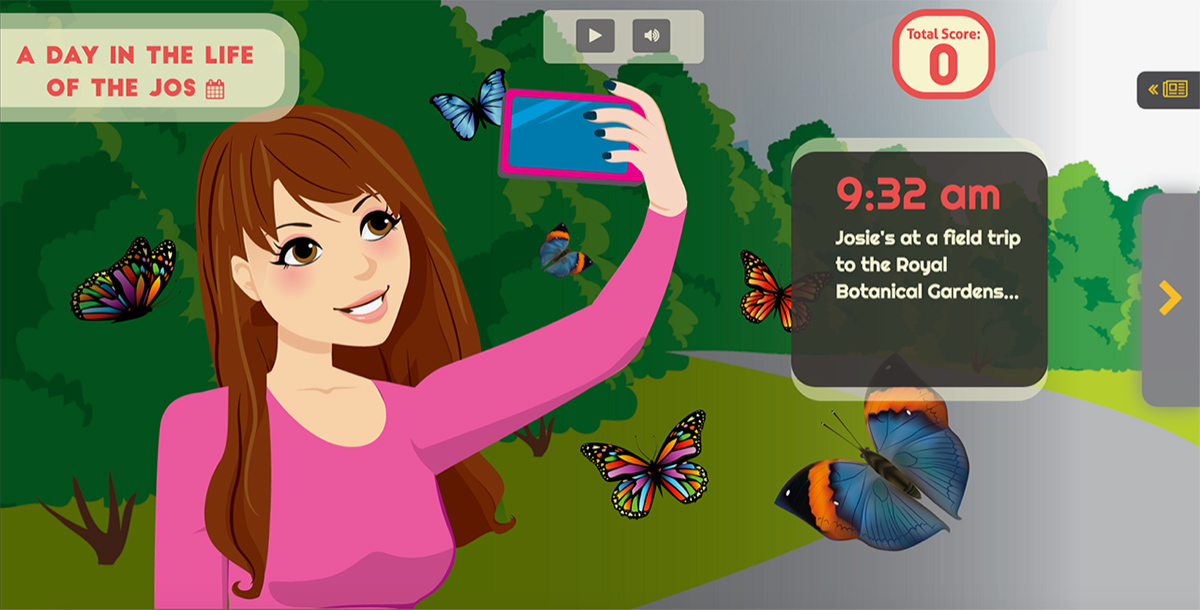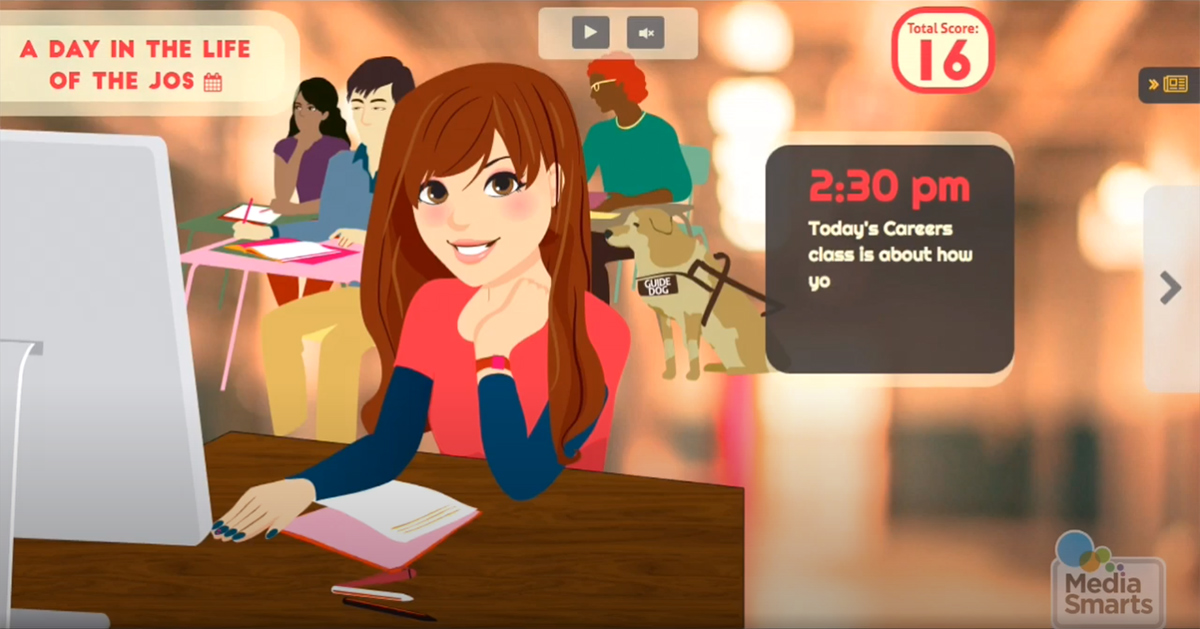By Elizabeth Howell
With children spending even more time online these days due to coronavirus-related restrictions, keeping them entertained safely is a pressing need for parents and educators.
Carleton postdoctoral researcher Sana Maqsood has spent years studying how to keep students safe, including by leading a Carleton collaboration with MediaSmarts that upgraded a popular educational video game. The new iteration is called A Day in the Life of the Jos.

Sana Maqsood
“I’m interested in working with children, and designing tools for security and privacy. Those two things were the focus of my research,” said Maqsood, who finished three degrees at Carleton.

Collaborating with MediaSmarts
The MediaSmarts collaboration was a key part of Maqsood’s PhD research, which she defended successfully in January 2020. MediaSmarts is a Canadian not-for-profit charitable organization that has been developing digital and media literacy programs and resources for Canadian homes, schools and communities since 1996.
 The Jos is a “day in the life” game that virtually follows two fictional students — Jo and Josie — and the choices they make in difficult moral situations. Their choices are publicized on a virtual social network, allowing gamers to see the real-time consequences in a social group of making one choice over another.
The Jos is a “day in the life” game that virtually follows two fictional students — Jo and Josie — and the choices they make in difficult moral situations. Their choices are publicized on a virtual social network, allowing gamers to see the real-time consequences in a social group of making one choice over another.
Jos was inspired by a previous MediaSmarts resource – Jo Cool or Jo Fool, still a popular game after 15 years – but the new game has a completely revamped storyline and visuals. The refreshed version was used in 300 classrooms across the country by early 2020.

Research with Real Impact
Maqsood received $90,000 over three years under the Mitacs-Accelerate PhD fellowship and was supervised by Sonia Chiasson, associate professor in the School of Computer Science, also a long-time mentor. Chiasson said Maqsood’s financial support and reach is a stellar example among young Carleton researchers.
“Oftentimes a doctoral research project will result in a publication or a couple of talks, so it was a welcome opportunity to see Sana’s research output reach school districts across the country where it can have a real impact,” Chiasson said.
“Working with MediaSmarts was fantastic, as that provided a network of people who can recommend resources to us and spread the word among interested teachers.”
The Carleton-MediaSmarts collaboration first gathered steam in 2015, when former Carleton master’s student Christine Mekhail (also supervised by Chiasson) examined updating Jos as part of her master’s research. As the project grew in scope, Chiasson felt it would be helpful to bring a PhD student on, which was when Maqsood took the reins.
“All of the students in my group work on digital security and privacy,” Chiasson said. “Each student takes on a piece of that subject that is of interest to them. In essence, working in our lab allows them to spread their wings and go in the direction they want.”

A Natural Fit
The collaboration was a benefit to MediaSmarts, which pointed to Carleton’s research as key to the game’s success.
“We really did want to have the game based on best practices and, ideally, field research done that reflected what was the best way of delivering this content through multimedia,” said Matthew Johnson, MediaSmarts’ director of education.
“It was a natural fit for us to work with Chiasson’s group, to have them draw on their knowledge of the best practices. We were tremendously fortunate that they were able to do testing of the game over the course of its development, and also — in the end — evaluate its effectiveness.”

The Carleton Journey
Maqsood joined Carleton as an undergraduate, graduating in 2012 with an honours degree in Computer Science — and winning a university medal for academic achievement. She continued her research as part of the multidisciplinary Master’s Degree in Human-Computer Interaction, completing that in 2014. She also worked as a user experience designer for the Government of Canada before moving on to PhD studies.
Maqsood’s other awards include teaching and research assistantships, as well as two nominations for Senate medals for her master’s and PhD studies. She also taught as a contract instructor in Computer Science on the subjects of computer science and human-computer interaction.
Friday, June 26, 2020 in Grad Stories, Graduate Students, Human-Computer Interaction, Information Technology, Research
Share: Twitter, Facebook



